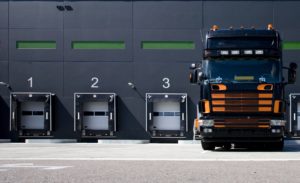There are many business-to-business operations that exist today with a global presence, either in operational locations or by customers served. But the expanding geographic reach of so many businesses has greatly complicated logistics networks.
 Although many of these operations have worked to streamline and improve costs, finding ways to implement comprehensive improvements for worldwide B2B operations remains elusive for quite a few businesses.
Although many of these operations have worked to streamline and improve costs, finding ways to implement comprehensive improvements for worldwide B2B operations remains elusive for quite a few businesses.
In a recent article for The Boston Consulting Group, a group of analysts outlined how best to tackle the logistics challenges of today’s global business era, on the site BCG.perspectives.
Here is a recap of their analysis:
(You can read the full article on cutting logistics costs here)
The Problem
Quite a few businesses have figured out how to minimize logistics costs on a route-by-route level, but few have a holistic view of logistics networks or the associated costs.
Why is this?
Silo-type operations, with segmented sections each handling a single aspect of logistics, BCG reported.
This can translate to situations in which entirely different sections of a business handling components like shipping to customers or negotiation of carrier rates. Some businesses have supply chain management systems that are segmented by customer, or separation of inbound and outbound logistics management.
The end result of silos like these can be duplication of efforts or other inefficiencies as different managers focus their attention on the logistics costs of their own areas of operation.
The Solution – Five Levers
There are five steps that the BCG analysts reported can be implemented to create a comprehensive logistics system.
- Mode and Route Mix – determine what types of transportation, over which routes, will optimize the flow of goods in terms of cost and lead time. Managers take into account inbound and outbound logistics, along with potential synergies with supplier and customer networks. An example from BCG; shipping a smaller load by truck along a certain route may be more cost efficient than a larger load by rail if it speeds delivery time and puts more products to work faster by decreasing the amount of inventory in-transit.
- Warehouse and Distribution Center Network – a careful and complete assessment of where a business should locate warehouses and distribution centers and house products. It is recommended that operations consider whether it will be more cost-effective to serve different customers from different warehouses or one distribution center. Strategically placed warehouses can offer closer locations for specific customers, but a central location has the potential for negotiating lower shipping rates with carriers.
- Production Origin and Destination Swaps – arbitrage opportunities are sought out by reallocating products and clients to certain production sites that reduce overall distances. The benefits are weighed against operational constraints and possible capital implications.
- Shipment Consolidation – taking a close look at a production schedule to discover means of consolidating shipping. Some examples of building bigger shipments could include establishing a hub and clustering volume with other companies, leading to the potential to negotiate better shipping deals, BCG reported.
- Shipping Rates – keep an eye out for routes on which the business may be overpaying. Companies should explore alternatives modes and carriers, both to maintain transparency of cost and price structure and to generate competition among shippers.
Pulling the Levers
The question of what levers to pull when is complex, as every company and every situation is different. The BCG analysts recommend starting by gathering the supply chain leaders from throughout the business to assess the current logistics network. From there, the biggest cost drivers and logistics constraints can be identified.
The supply chain leaders can eventually paint a detailed picture of how the network operates, and fine-tune it to create holistic improvements.
Once this picture has been sketched, it can ideally continue to serve as a blue-print for managing a company’s supply chain management.
You may be interested in these related posts:
- 3 Tips to Lower Freight Shipping Costs Before the Load Leaves the Dock
- Reduce Your Shipping Damage by 50%
- The Insidious Effect of Shipping Damage on Your Brand’s Reputation
This post was published on August 11, 2016 and updated on February 21, 2019.
August 11, 2016


